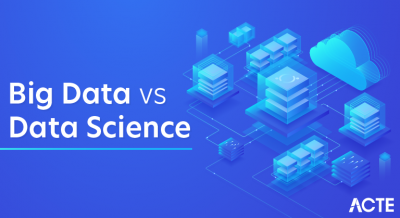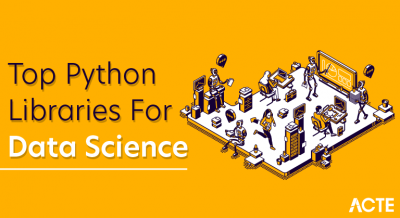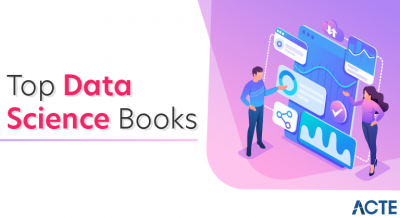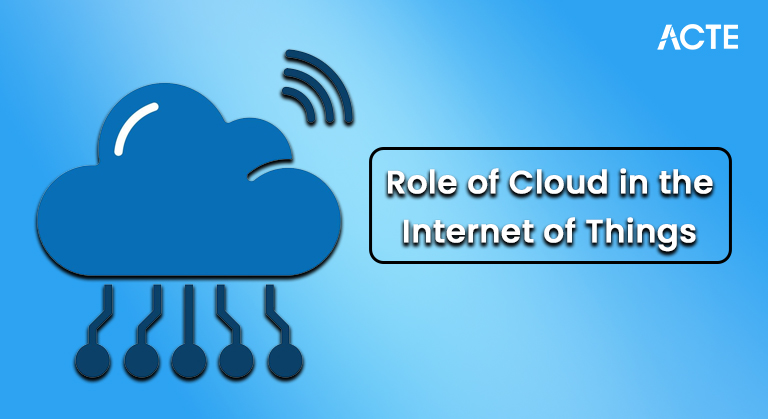
- Introduction to Data Science and Cloud Computing
- Why Cloud Computing is Essential for Data Science
- Cloud-Based Data Storage Solutions
- How Cloud Computing Enhances Machine Learning
- Serverless Computing for Data Science Workflows
- Big Data Processing in Cloud Environments
- Security and Compliance in Cloud-Based Data Science
- Cloud-Based AI and Deep Learning Frameworks
- Future Trends in Data Science and Cloud Integration
- Conclusion
Introduction to Data Science and Cloud Computing
Data Science is a multidisciplinary field that uses scientific methods, processes, algorithms, and systems to extract knowledge and insights from structured and unstructured data. It combines elements from statistics, computer science, machine learning, and data analysis to solve complex problems and enable data-driven decision-making. Data science plays a critical role in various industries, such as finance, healthcare, marketing, and technology, by unlocking actionable insights from massive amounts of data. On the other hand, Cloud Computing refers to the delivery of computing services such as storage, processing, and software over the internet, or “the cloud,” a fundamental concept taught in any Cloud Computing Course. This approach provides scalable, on-demand access to computing resources without the need for physical infrastructure. Cloud computing has revolutionized how data science is practiced by offering a range of services that support data storage, computation, and collaboration, enabling data scientists to work more efficiently and cost-effectively. In the modern era, the integration of data science and cloud computing has become a driving force behind innovations in artificial intelligence (AI), machine learning, and big data analytics.
To Earn Your Cloud Computing Certification, Gain Insights From Leading Cloud Computing Experts And Advance Your Career With ACTE’s Cloud Computing Online Course Today!
Why Cloud Computing is Essential for Data Science
- Scalability and Flexibility: Cloud computing provides virtually unlimited computing power and storage. This flexibility allows data scientists to scale their resources according to the needs of their projects. Whether handling a small dataset or large-scale data processing, the cloud can quickly adapt to demand.
- Cost-Efficiency: Traditional data storage and computing solutions can be expensive to set up and maintain. Cloud services, however, offer a pay-as-you-go model, meaning that businesses only pay for the resources they actually use, which can be efficiently tracked and managed using tools like Azure Boards with DevOps. This is particularly beneficial for data science teams with varying or unpredictable workloads.
- High-Performance Computing: Cloud platforms offer high-performance computing (HPC) capabilities, which are critical for running large-scale machine learning models, simulations, and big data analytics. With cloud resources, data scientists can access cutting-edge hardware like GPUs, TPUs, and large clusters of virtual machines.
- Collaboration and Accessibility: Cloud computing enables collaboration between teams in different geographical locations. Data scientists can work together in real-time, access datasets, share results, and deploy models easily from any location, as long as they have internet access.
- Easy Integration with Data Sources: Cloud computing services can integrate with a wide range of data sources, including IoT devices, public datasets, APIs, and databases. This makes it easier for data scientists to collect, clean, and process data without worrying about complex infrastructure setup.
- Object Storage: Cloud providers offer scalable object storage solutions such as Amazon S3 (AWS), Azure Blob Storage, and Google Cloud Storage. These solutions allow data scientists to store large volumes of unstructured data, such as images, videos, logs, and machine learning model outputs.
- Relational Databases: Traditional relational databases, such as Amazon RDS, Google Cloud SQL, and Azure SQL Database, are commonly used in data science for storing structured data, with access often protected by tools like Azure Network Security Group (NSG). These services provide managed database environments that take care of maintenance tasks such as backups and updates.
- Data Lakes: For storing both structured and unstructured data at scale, cloud data lakes are an effective solution. Services like Amazon Lake Formation, Azure Data Lake, and Google Cloud Storage provide highly scalable, cost-efficient storage systems for big data, where data scientists can store, process, and analyze raw data before transforming it for more structured use.
- Data Warehouses: Cloud data warehouses such as Amazon Redshift, Google BigQuery, and Azure Synapse Analytics are optimized for fast querying and analytics. They provide the performance necessary to run complex SQL queries on large datasets and are essential for business intelligence and reporting.
- Cost-Effective: In serverless computing, users only pay for the actual compute time used, which makes it highly cost-effective for intermittent tasks such as data transformation, preprocessing, and running machine learning models.
- Simplified Workflow: Serverless services like AWS Lambda, Azure Functions, and Google Cloud Functions allow data scientists to run individual functions or processes in the cloud without provisioning or managing servers, and managing such infrastructure as code becomes more efficient with a solid Understanding Terraform. This simplifies the development and deployment of data science workflows.
- Scalability: Serverless computing automatically scales based on workload, making it ideal for processing events such as file uploads, database changes, or streaming data. This scalability ensures that data science tasks can handle large volumes of data efficiently.
- Integration with Other Cloud Services: Serverless functions easily integrate with other cloud services, such as cloud storage, messaging queues, and databases. This makes it convenient for data scientists to build automated pipelines that handle the entire data science lifecycle.
- Distributed Computing: Cloud platforms offer distributed computing solutions, such as Amazon EMR (Elastic MapReduce), Google Dataproc, and Azure HDInsight, that allow data scientists to process large datasets in parallel using frameworks like Apache Hadoop and Apache Spark.
- Data Lakes and Warehouses: Data lakes and data warehouses in the cloud enable the storage and processing of big data. Cloud platforms can efficiently manage and process petabytes of data through distributed systems, enabling data scientists to run queries and analyses that would otherwise be computationally infeasible.
- Data Streaming: For real-time big data processing, cloud services like Amazon Kinesis, Google Cloud Dataflow, and Azure Stream Analytics allow data scientists to ingest, process, and analyze data streams in real-time, concepts that are often covered in a Cloud Computing Course.
- Data Integration Tools: Cloud platforms provide robust data integration services, such as AWS Glue, Azure Data Factory, and Google Cloud Data Fusion, which help in collecting, transforming, and unifying data from multiple sources, streamlining the ETL (Extract, Transform, Load) process.
- Security and Compliance: Cloud providers ensure enterprise-grade security and compliance standards, including data encryption, access control, and regulatory compliance (e.g., GDPR, HIPAA), allowing data scientists to work confidently with sensitive and large-scale data.
- TensorFlow and PyTorch: These popular deep learning frameworks are fully supported in cloud environments, with cloud providers offering pre-configured environments for running models. Google AI Platform and AWS SageMaker provide optimized environments for TensorFlow and PyTorch.
- Pre-trained Models: Cloud providers offer pre-trained models for various AI tasks, such as image recognition, natural language processing, and speech-to-text, which can be seamlessly integrated into infrastructure using tools like Getting Started with AWS CDK.
- AutoML: Platforms like Google Cloud AutoML and Azure Automated Machine Learning provide tools that automate the creation and training of deep learning models. This democratizes AI, making it accessible to a wider range of data scientists and engineers.
- Increased Adoption of Edge Computing: As IoT devices proliferate, more data science models will be deployed at the edge to process data closer to its source, reducing latency and bandwidth costs.
- AI-Driven Data Science: Automation and AI will play an increasingly important role in data science, helping data scientists streamline workflows, optimize models, and improve predictions.
- Serverless and Event-Driven Architectures: Serverless computing will continue to grow, enabling data scientists to focus more on the logic of their workflows rather than managing infrastructure, a trend often emphasized in a comprehensive Cloud Computing Course.
- Enhanced Collaboration Tools: Cloud platforms will continue to improve their collaboration tools, allowing data scientists to work more effectively in distributed teams.
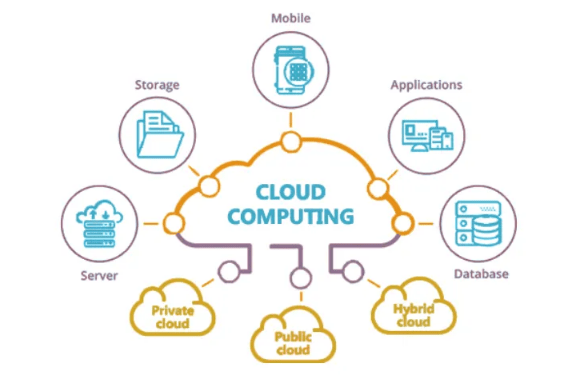
Cloud-Based Data Storage Solutions
Storing data efficiently and securely is one of the most important aspects of data science. Cloud-based data storage solutions are a cornerstone for modern data-driven applications. Some popular storage solutions include:
To Explore Cloud Computing in Depth, Check Out Our Comprehensive Cloud Computing Online Course To Gain Insights From Our Experts!
How Cloud Computing Enhances Machine Learning
Cloud platforms significantly enhance the machine learning (ML) development process by providing access to powerful, specialized hardware like GPUs and TPUs, which are essential for training deep learning models on large datasets. Managed ML services such as Amazon SageMaker, Azure Machine Learning, and Google AI Platform simplify the ML lifecycle by offering built-in tools for data preprocessing, model training, tuning, and deployment, which can be integrated within a well-architected environment like an AWS Landing Zone. These services reduce the complexity of ML workflows, enabling faster development. Additionally, cloud-based platforms promote collaboration among data scientists and engineers by allowing easy sharing of datasets, models, and results. Tools like Google Colab and Jupyter Notebooks offer interactive environments for running and sharing ML experiments.
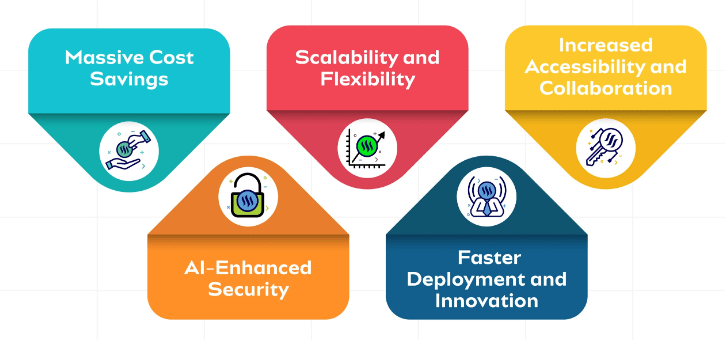
Cloud computing also allows users to scale resources dynamically, making it cost-effective and efficient for training large models. Furthermore, AutoML tools like Google AutoML and Azure AutoML empower non-experts to create high-performing models by automating algorithm selection and hyperparameter tuning with minimal coding effort.
Serverless Computing for Data Science Workflows
Serverless computing is an emerging trend that allows data scientists to run code without worrying about the underlying infrastructure. With serverless computing, the cloud provider automatically manages the scaling and execution of code. Benefits for data science workflows include:
Big Data Processing in Cloud Environments
Looking to Master Cloud Computing? Discover the Cloud Computing Masters Course Available at ACTE Now!
Security and Compliance in Cloud-Based Data Science
Security and compliance are essential aspects of cloud-based data science environments, particularly due to the sensitive and large-scale nature of the data being handled. Cloud providers implement multiple layers of security to protect data and ensure adherence to regulatory requirements. One key feature is data encryption, which secures information both at rest and in transit, preventing unauthorized access during storage or transmission. Another critical component is Identity and Access Management (IAM), which allows organizations to define fine-grained access controls, ensuring that only authorized users can access specific datasets, models, or computing resources, while threat detection can be enhanced with services like AWS Amazon GuardDuty. In addition to these controls, cloud platforms maintain compliance certifications with major industry standards and regulations such as GDPR, HIPAA, SOC 2, and PCI-DSS, ensuring that data science projects meet legal and ethical data protection standards. Furthermore, cloud services offer auditing and monitoring tools, which provide real-time insights into user activity and system behavior. These tools help detect unusual behavior, potential threats, and unauthorized access, thus maintaining data integrity, confidentiality, and compliance across the cloud infrastructure.
Cloud-Based AI and Deep Learning Frameworks
Cloud platforms support AI and deep learning frameworks, making it easier for data scientists to build and deploy advanced models:
Preparing for a Cloud Computing Job Interview? Check Out Our Blog on Cloud Computing Interview Questions & Answer
Future Trends in Data Science and Cloud Integration
The integration of data science and cloud computing will continue to evolve with the following trends:
Conclusion
Cloud computing has revolutionized data science by providing scalable, flexible, and cost-effective solutions for storage, computation, machine learning, and data processing. With the ability to access vast computing resources on demand, data scientists can now handle massive volumes of structured and unstructured data more efficiently than ever before. The integration of cloud computing and data science enables teams to work more collaboratively across geographies, streamline workflows, and accelerate innovation. It also simplifies model training, deployment, and monitoring by offering pre-built AI services and machine learning platforms. Furthermore, cloud environments support automation, continuous integration/continuous deployment (CI/CD), and reproducibility, which are critical for maintaining accuracy and agility in data science projects. As cloud technologies continue to evolve with advancements in edge computing, serverless architecture, and quantum computing data science will become even more accessible, powerful, and efficient, driving smarter insights and better decision-making across industries.


